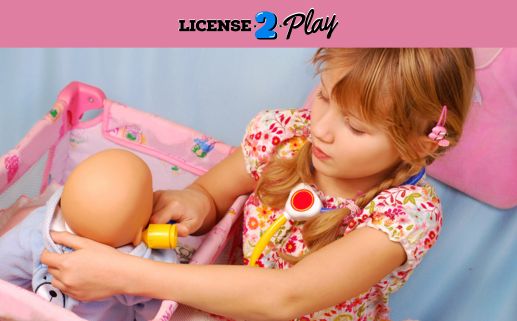
Playtime is more than just fun and games; it's a crucial aspect of a child's development. While toys entertain and engage children, they can also play a significant role in nurturing important life skills. In this blog, we'll explore the connection between emotional intelligence and playtime, focusing on how toys can help cultivate empathy in children, fostering healthier relationships and emotional well-being.
Understanding Emotional Intelligence
Emotional intelligence (EQ) is the ability to recognize, understand, and manage one's own emotions while also being attuned to the feelings of others. It involves empathy, self-awareness, social skills, and emotional regulation. EQ is a vital skill that contributes to personal happiness and success in various aspects of life, including relationships, education, and careers.
The Role of Toys in Developing Emotional Intelligence
Toys are powerful tools in a child's journey towards emotional intelligence, as they offer opportunities for exploration, imagination, and social interaction. Here's how toys can nurture empathy:?
- Diverse Representation: Toys that represent different cultures, backgrounds, and abilities encourage children to appreciate diversity and develop empathy towards others who may be different from them.?
- Dolls and Action Figures: Dolls and action figures can serve as a means for children to role-play and understand various emotions. They can act out scenarios that help them empathize with different feelings and situations.?
- Storytelling and Books: Toys that facilitate storytelling and come with books can engage children in narratives that explore emotional themes. These stories provide valuable lessons in empathy as children relate to the characters' experiences and emotions.
- Cooperative Games: Board games and group activities teach children about teamwork, cooperation, and the importance of considering others' feelings and perspectives.?
- Problem-Solving Toys: Puzzles, construction sets, and problem-solving toys promote critical thinking and empathy by encouraging children to understand challenges from multiple angles and consider different solutions.?
- Animal Toys: Stuffed animals and figurines can teach children about nurturing and caring for others, including empathy towards animals.
Practical Tips for Nurturing Empathy through Play?
- Choose Toys Mindfully: When selecting toys, prioritize those that encourage cooperative play, storytelling, and social interaction.?
- Model Empathy: Demonstrate empathy in your interactions with others, and explain your feelings and thought processes to your child to help them understand empathy better.
- Encourage Sharing and Turn-Taking: Teach children the importance of sharing toys and taking turns during play, which helps build empathy and cooperation.?
- Discuss Feelings: Encourage open conversations about emotions and feelings during playtime and daily life.?
- Practice Active Listening: When your child shares their thoughts and feelings during play, actively listen and validate their emotions.
Toys are not just sources of entertainment; they are tools that can shape a child's emotional intelligence. By providing toys that promote empathy and fostering a supportive play environment, you can help your child develop the skills needed for more compassionate and emotionally intelligent interactions with others. As a B2B toy retailer, you play a vital role in offering toys that contribute to the well-rounded development of the children you serve.
